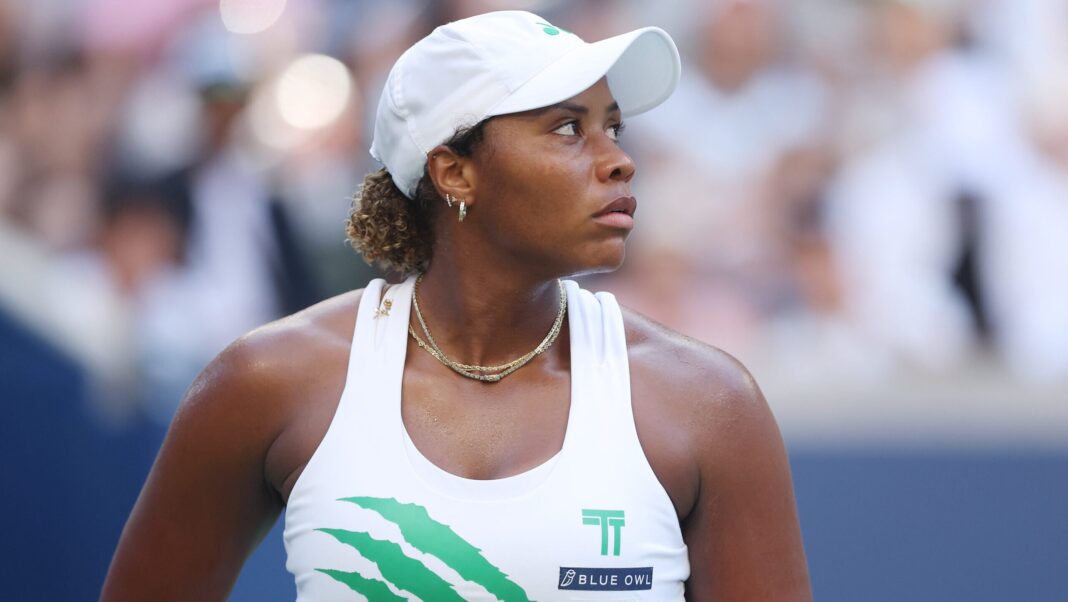The Depth of Taylor Townsend’s Message: Body Image, Misogynoir, and Personal Healing
In 2021, Taylor Townsend, a notable figure in American tennis, bravely opened up about her experiences in her essay for The Players’ Tribune titled “You Ain’t Never Been No Little Girl.” Written during a tumultuous time in her life, this heartfelt piece delves deeper than just the sport; it courageously tackles the intertwined issues of body shaming and misogynoir that she faced throughout her career.
The Seed of Inspiration
Townsend’s reflective essay emerged during a significant period of change as she navigated the challenges of new motherhood amid the COVID-19 pandemic. In a recent episode of “The Pivot” podcast, she disclosed how becoming a mother spurred her to address the generational trauma she had inherited. Her yearning to break this cycle for her son prompted her to unpack her experiences, particularly the toxic narratives about her body that had long shaped her existence.
Beyond the Courts
When asked about her feelings while writing the essay, Townsend remarked on the complexity of her situation. “It’s a loaded question because it goes much, much deeper than tennis,” she explained. For her, tennis served as a stage where larger societal issues manifest. She expressed the pressure she felt to prove herself, suggesting that her journey in tennis mirrored her broader struggles with identity and self-worth.
Navigating Standards
Townsend vividly recounts instances where external voices dictated her worth. She shared that comments she received about her body—both from within and outside the tennis community—often overshadowed her accomplishments. “When I have people telling me that my funding and my career is dependent on losing weight,” she expressed, “having to deal with that on a worldwide stage was very hard.” This constant scrutiny, she noted, was compounded by a society that often marginalizes individuals based on their body types, particularly for Black women.
Revelations in Isolation
Living alone in Florida during the pandemic, Townsend took advantage of the solitude to confront her past. She reflected on her upbringing and realized that many of the beliefs she held about her body were not her own but stemmed from family narratives. “What I would see in the mirror wasn’t my voice; it was my mom’s voice. It was my grandma’s voice,” she articulated, highlighting the weight of inherited perceptions that burdened her.
A Journey of Reclaiming Identity
Part of Townsend’s healing journey has involved redefining her relationship with fashion and body image. She recognized that her previous ways of dressing were often about camouflage rather than expression. “I used fashion to hide,” she noted, realizing that this behavior mirrored her mother’s and, by extension, a cycle she wished to break. The pressure to conform to societal expectations around weight made it challenging for her to embrace her unique style and, ultimately, herself.
The Challenge of Representation
Through her essay, Townsend touched a nerve within the sports community, spurring vital conversations about body image, race, and the unspoken gatekeeping prevalent in tennis. Her statement that “America hating fat Black women — it’s just part of life” encapsulates her acknowledgment of the pervasive challenges that many women face in sports and society at large.
A New Narrative
As Townsend continues to excel—currently ranked as the world’s No. 1 doubles player—her narrative is evolving. She stands not only as a testament to resilience in the face of adversity but also as a beacon of change within a sporting arena that often overlooks the complexity of identity. By sharing her journey, she aims to foster dialogue and inspire others grappling with similar issues, shedding light on the importance of confronting inherited trauma and redefining societal standards of beauty.
Through her candid reflections, Taylor Townsend is not just sharing her story; she is helping to pave the way for a new understanding of self-worth that transcends the court—a message that resonates deeply in today’s society.



